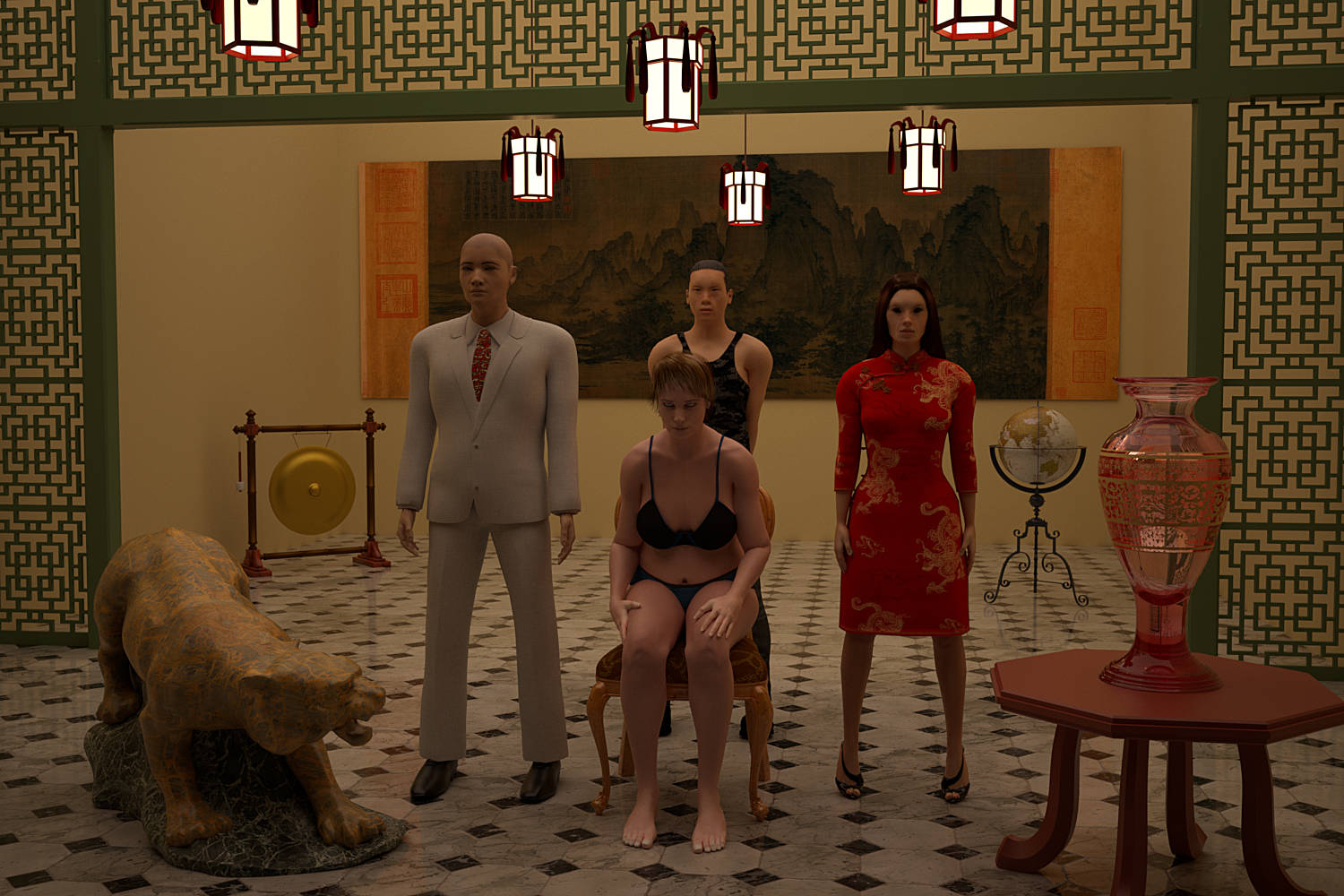
The Daughter of Fu Manchu
2018
Inkjet on watercolour paper
90 x 60 centimeters
English novelist Sax Rohmer’s fictional character Dr. Fu Manchu is the archetypal super villain who sends stealthy assassins from his Oriental lair on missions to undermine western powers in his quest to further Chinese nationalism. The novels which embody the early 20th century colonial suspicion about Oriental political aspirations traded in stereotypes that were quite appealing to film makers working in a less politically correct era and who were purely interested in crude entertainment. One such film depicts Fu Manchu’s daughter instilling law and order with the aid of a lash in the doctor’s harem of comely looking western women who are predictably clad only in their underwear.
I’ve long been an enthusiast of exploitation cinema but in my reimagining of the doctor and his daughter I’ve opted for a less salacious interpretation by presenting the ensemble of characters as a family portrait. The typical cinematic depiction of Fu Manchu as a lithe figure clad in a Chinese robe and cap and sporting a long thin moustache has been substituted by a muscular man dressed in a pale coloured business suit. With his stony expression and his hands hanging loosely by his sides, he exudes a powerful businesslike menace.
His daughter is dressed in an elegant Chinese qipao and her stance echoes that of her dad as she is clearly following in his footsteps in managing the family business. The dacoit assassin stands in a military ‘at ease’ pose but his clothes are pure street thug and his position at the rear of the ensemble suggests both his stealthy profession as well as his lowly rank in the organisation.
The middle aged female captive is presented as their prize, her seated position in front of her captors is characteristic of terrorist propaganda videos and her hunched posture recalls the passivity of prisoners uncertain of their fate. She is middle-aged and it appears as if she has been yanked from comfortable suburbia into an unfathomable fate. She could represent senescent western nations struggling to maintain a prosperous and peaceful life in a politically unpredictable world but she is certainly intended as a poke at exploitation cinema that insists on comely young female actors with bountiful physical attributes.
The objects in the room reflect the doctor’s polymath erudition and tastes but also symbolise his ambitions for power.
Fu Manchu's Daughter, a 1931 film review : The New York Times
Fu Manchu : Wikipedia
The Yellow Peril: Dr Fu Manchu and the Rise of Chinaphobia review – the factors that shaped our fear of China : The Guardian